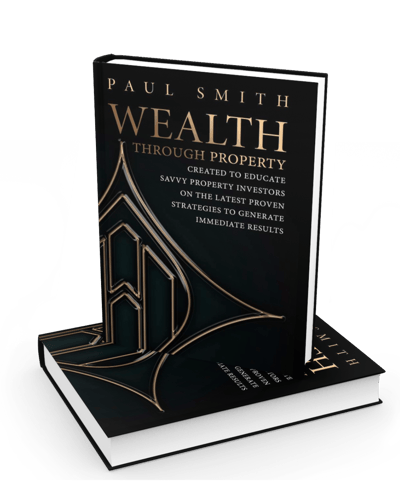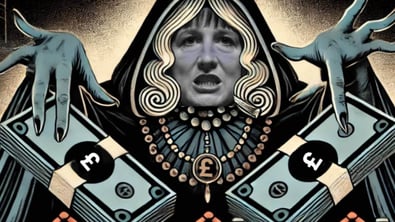There is usually a direct link between the Bank of England’s interest rate – known as the base rate – and mortgage rates set by individual lenders.
In recent times, both have seen significant increases to tackle the current rate of inflation.
However, with banks confident that the interest rate will fall in the future, mortgage rates have already started to decrease.
This blog post explains all you need to know.
What is the base rate?
The base rate influences the interest rates that many lenders charge for mortgage loans and other types of credit that they offer people.
The base rate can change as a means of influencing the UK economy. Lower rates encourage people to spend more, but this can lead to inflation. Higher rates can have the opposite effect.
The base rate is currently 4%.
What is a mortgage rate?
The mortgage rate is the amount of money that is paid to a lender in return for borrowing from them.
It is available as a percentage of the amount borrowed. Typically individuals want a low mortgage rate as this means the mortgage holder will pay less to the lender in borrowing costs.
What are the types of mortgage interest rate?
Fixed rate: A fixed rate mortgage comes with a set interest rate that stays the same for an agreed number of years. This means that no matter what happens to the base interest rate set by the Bank of England, the mortgage repayments stay the same.
Variable rate: A variable rate mortgage comes with an interest rate that can charge, which means mortgage repayments can go up or down.
Tracker rate: A tracker mortgage interest rate can change over time. The difference with a tracker mortgage, over a variable rate mortgage, is that a tracker rate mortgage is set at a fixed amount above or below another rate (usually the BoE base rate).
What is currently happening with interest rates?
In February the Bank of England’s base rate increased by 0.5% to 4%.
This was increased due to the rate of inflation, which is currently 10% when the target is 2%.
It means that individuals will face higher borrowing costs and businesses face higher loan rates.
This has contributed to the ‘cost of living crisis’. Higher energy and food bills have also risen at the mortgage (and subsequently rent) costs.
Inflation has fallen slightly as a result of the Bank of England’s measures. The BoE expects it to fall quickly from the middle of this year and be around 4% by the end of the year and reaching the 2% target after that.
Why are mortgage rates falling?
The five-year fixed mortgages are set to drop below 4%, according to the Financial Times.
After 10 upward moves since December 2021, the Bank of England has suggested that rates may have peaked.
As a result lenders who set prices for their fixed mortgage deals using financial market expectations about future base rate movements, had already priced in the latest tightening of monetary policy.
The FT reports, “The change in expectations in the overnight index swap market, which follows Bank of England decisions, suggest the average central bank rate over the coming two years will be 3.75%, down from 4.34% at the start of January. The average Bank of England rate over the coming five years is now 3.21%, down from 3.93% in January.
What does the mortgage rate decrease mean for buyers?
Ray Boulger, manager at broker John Charcol, said, “There’s a clear ability in the market now to offer a five-year fixed rate at sub-4% and the first lenders to do that will get some good marketing from it.”
Simon Gammon, managing partner at broker Knight Frank Finance, said borrowers would welcome a significant drop in the cost of two-year fixed mortgages.
“At the moment, five-year fixed rates are cheaper than two-year fixed rates. But a lot of people with uncertainty and those who don’t quite know when to fix are actually more interested in the shorter term deals.”
David Hollingworth of mortgage broker L&C said, “The pace of change in mortgage rates have picked up but in contrast to last year we are now seeing rates cut, as the price war intensifies.
“More stable and cheaper funding conditions are enabling lenders to improve rates and reverse some of the huge hikes that followed the mini-budget.
“Competition between lenders is likely to be fierce as they want to lend and will therefore need to offer attractive products. I expect that we will see the fixed rate cuts continue despite the potential for another base rate increase next week.”
What does this mean for property investors?
Touchstone Education founder and experienced property investor, Paul Smith, said:
“The market predicts that rates are going to come down and are confident that rates will fall.
“You can now get rates at 3.1-3.5%, which is far better than it was and lower than the base rate – which is good news for homebuyers.”
The current state of the mortgage market creates opportunities for property investors.
The decrease in mortgage rates means that the cost of acquiring the property is cheaper, meaning that better property can be purchased on a budget.
It also means that there are more buyers on the market – strengthening the position of the seller as they can hold out for a bigger price on in-demand properties.
It also has a knock-on effect for buy-to-let investors as individuals with great disposable income means fewer problems with tenants and also greater opportunities to change a higher rent price.
To make the first steps on your property journey, read this free Wealth Through Property e-book.
Wealth Through Property is the UK’s leading 2-day property investment course. It is designed to provide you with specialist knowledge of proven investor strategies. Learn how to get started and build your property portfolio and gain real-world advice.
To find out more information about Wealth Through Property and the other courses we offer call us on 01302 897131 or email office@touchstoneeducation.co.uk.












